Fleurs du Mal Magazine


Or see the index
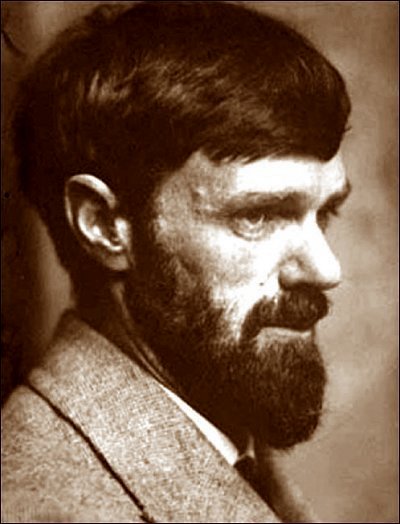
D. H. Lawrence
(1885-1930)
After Many Days
I wonder if with you, as it is with me,
If under your slipping words, that easily flow
About you as a garment, easily,
Your violent heart beats to and fro!
Long have I waited, never once confessed,
Even to myself, how bitter the separation;
Now, being come again, how make the best
Reparation?
If I could cast this clothing off from me,
If I could lift my naked self to you,
Or if only you would repulse me, a wound would be
Good; it would let the ache come through.
But that you hold me still so kindly cold
Aloof my flaming heart will not allow;
Yea, but I loathe you that you should withhold
Your pleasure now.
D. H. Lawrence poetry
kempis.nl poetry magazine
More in: Archive K-L, Lawrence, D.H.
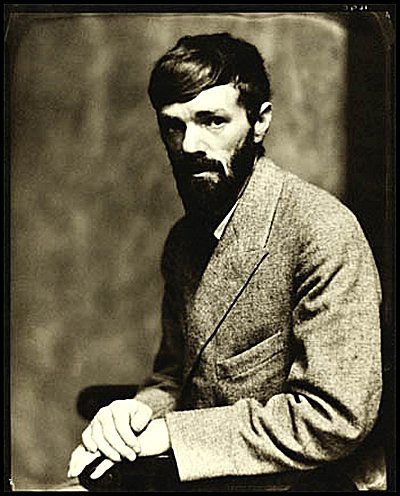
D. H. Lawrence
(1885-1930)
A Baby Asleep After Pain
As a drenched, drowned bee
Hangs numb and heavy from a bending flower,
So clings to me
My baby, her brown hair brushed with wet tears
And laid against her cheek;
Her soft white legs hanging heavily over my arm
Swinging heavily to my movement as I walk.
My sleeping baby hangs upon my life,
Like a burden she hangs on me.
She has always seemed so light,
But now she is wet with tears and numb with pain
Even her floating hair sinks heavily,
Reaching downwards;
As the wings of a drenched, drowned bee
Are a heaviness, and a weariness.
D. H. Lawrence poetry
kempis.nl poetry magazine
More in: Archive K-L, Lawrence, D.H.
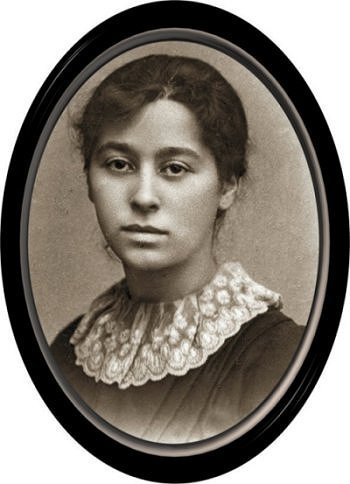
Amy Levy
(1861-1889)
Ballade of an Omnibus
“To see my love suffices me.”
Ballades in Blue China
Some men to carriages aspire;
On some the costly hansoms wait;
Some seek a fly, on job or hire;
Some mount the trotting steed, elate.
I envy not the rich and great,
A wandering minstrel, poor and free,
I am contented with my fate —
An omnibus suffices me.
In winter days of rain and mire
I find within a corner strait;
The ‘busmen know me and my lyre
From Brompton to the Bull-and-Gate.
When summer comes, I mount in state
The topmost summit, whence I see
Crœsus look up, compassionate —
An omnibus suffices me.
I mark, untroubled by desire,
Lucullus’ phaeton and its freight.
The scene whereof I cannot tire,
The human tale of love and hate,
The city pageant, early and late
Unfolds itself, rolls by, to be
A pleasure deep and delicate.
An omnibus suffices me.
Princess, your splendour you require,
I, my simplicity; agree
Neither to rate lower nor higher.
An omnibus suffices me.
Amy Levy poetry
fleursdumal.nl magazine
More in: Amy Levy, Archive K-L, Levy, Amy

Freda Kamphuis Debuut-gedichtenbundel
Hoopvolle vogels
Binnen het poëziefonds van Triona Pers in Houwerzijl is recentelijk de gedichtenbundel ‘Hoopvolle vogels’ verschenen van de Groninger dichteres Freda Kamphuis. Het betreft een debuutbundeling van tien gedichten en een zelfgemaakte vinylsnede, waarvan vijf gedichten met de vriendelijke medewerking van diverse vogels. Het ontwerp van de bundel en het zetwerk uit de Lectura is op ambachtelijke wijze gedaan door Dick Ronner van Triona Pers. Vervolgens zijn de bundels handmatig door hem gedrukt m.b.v. een Korrexpers. Onder andere het onderstaande gedicht is in de bundeling opgenomen.
Hierbij de link naar de informatie / bestelpagina op de Website Triona Pers
Zonder vogels
Wezen van iets
omschreven
door
woord is
eigenlijk niets
onmachtige
taal – het staat
er te klein het
staat er te
schraal
de vogels
vliegen
veel
mooier dan
in dit gedicht
dat zichzelf
moest
herschrijven
tot dat
wat hier ligt.
Freda Kamphuis
fleursdumal.nl magazine
More in: Archive K-L, Kamphuis, Freda
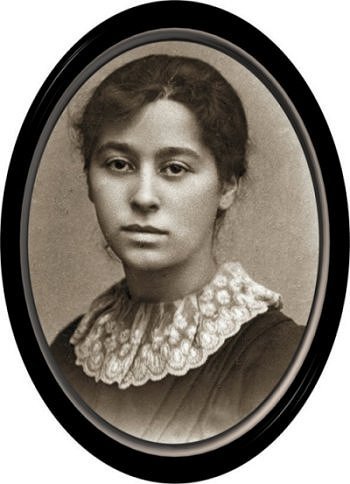
Amy Levy
(1861-1889)
A June-Tide Echo
(After a Richter Concert)
In the long, sad time, when the sky was grey,
And the keen blast blew through the city drear,
When delight had fled from the night and the day,
My chill heart whispered, ” June will be here!
” June with its roses a-sway in the sun,
Its glory of green on mead and tree.”
Lo, now the sweet June-tide is nearly done,
June-tide, and never a joy for me
Is it so much of the gods that I pray?
Sure craved man never so slight a boon!
To be glad and glad in my heart one day–
One perfect day of the perfect June.
Sweet sounds to-night rose up, wave upon wave;
Sweet dreams were afloat in the balmy air.
This is the boon of the gods that I crave–
To be glad, as the music and night were fair.
For once, for one fleeting hour, to hold
The fair shape the music that rose and fell
Revealed and concealed like a veiling fold;
To catch for an instant the sweet June spell.
For once, for one hour, to catch and keep
The sweet June secret that mocks my heart;
Now lurking calm, like a thing asleep,
Now hither and thither with start and dart.
Then the sick, slow grief of the weary years,
The slow, sick grief and the sudden pain;
The long days of labour, the nights of tears–
No more these things would I hold in vain.
I would hold my life as a thing of worth;
Pour praise to the gods for a precious thing.
Lo, June in her fairness is on earth,
And never a joy does the niggard bring.
Amy Levy poetry
fleursdumal.nl magazine
More in: Amy Levy, Archive K-L, Levy, Amy




Freda Kamphuis
De zwanen
Zelfs in het gras liggen zij er statig bij
met vijf kleintjes, grauwig nog en duf,
ouders priemen dubbel waakzaam alle
kanten op met felle kopjes, mag ook
wel vlak bij de stad, ook mij, veraf,
bekijken zij met kiene blik en ik klik
en klik en klik en probeer onzichtbaar
mens te zijn voor zover dat kan als mens
want wil de luierende dieren niet verstoren.
Een tijd later glijdt één voor één de
hele zevenkoppige familie het water in,
vijf sierlijke kopjes kijken alle kanten op
twee grotere stevenen al af op doel en
ik hoop vurig dat alle snoeken, of andere
naar voetjes happende happers even lekker
ver weg aan de Costa’s op vakantie zijn,
met de KLM bijvoorbeeld, associeer ik vast
geheel toevallig hier, Aeroflot mag ook, is
misschien nog wel zo snoekgericht qua
service en ook maaltijden en neerstortkans
en wens dat dit grijze vijftal hier wit mag
worden, net als trotse hagelwitte pa en ma,
als ik wegfiets, fietsen, zwemmen we heel
even in formatie naast elkaar, zij blijven daar.





Freda Kamphuis © gedicht & foto’s
kempis.nl poetry magazine
More in: Archive K-L, Kamphuis, Freda
.jpg)
Mikhail Yuryevich Lermontov
(Михаи́л Ю́рьевич Ле́рмонтов 1814 – 1841)
On the death of the poet
The poet is no more! He’s fallen
A slave to honour –
Lead in his chest, for vengeance calling,
The proud head bowed at last – he died!…
He would not brook the rankling shame
The petty calumnies, the stain
They sought to put upon his name….
Alone he stood, and now is slain!
Is slain… What use in lamentation,
Or empty choruses of praise,
Belated words of exculpation?
Say rather – Fate cut short his days!
Yet – are you blameless, you who banned
His free, brave talent out of spite,
And smouldering flames to white heat fanned
That should have been extinguished quite?
Come, be content, then – such refinement
Of pain was more than he could bear.
The lamp of genius is no longer shining,
The laurel wreath is fading now and sear.
Yet the assassin knew no hesitation
In cooly taking aim… not one
Beat missed that heart; no saving revelation
Made tremble that fell hand which held the gun….
Hard is it though indeed to credit
How came it that this common emigre,
This fortune hunter, this upstart careerist,
This poor blind tool of destiny,
Should, in his insolence, so spurn our land,
Her language and her customs fair
And spare no thought her chiefest pride to spare
Nor pause to wonder what it was – he dare,
To think ‘gainst what he raised his hand!…
So he is slain – our singer – dead and gone
Like that less-known but well-beloved one
Of whom he told in wondrous poetry,
Who, like him by a ruthless hand undone,
A victim fell to senseless jealousy.
Why did he leave his peaceable pursuits and friendships
For this false world of harsh constraint and envy
To free and ardent heart so straight a pen?
Why did he give his hand to futile tattlers?
Why did he credence lend to liers, flatterers,
Who from his youth had been a judge of men?…
They’ve robbed him of his crown and set a crown of thorns
All wound about with laurel on him now
The hidden spikes have deeply torn
The poet’s glorious brow;
And even his last moments were envenomed
By gossips ill-disposed and vulgar whispering
And so he died – filled with vain thirst for vengeance
And plagued by broken hopes fast festering….
The splendid songs will sound no more,
To silence must the great voice yield
In that small room without a door….
And – ah! – those lips are sealed.
– – – – – –
But as for you, you arrogant descendants
Of fathers famed for their base infamies
Who, with a slavish heel, have spurned the remnants
Of nobler but less favoured families!
Who throng the throne, alert for gain – and gory
As executioners who cloak their vile intent
In robes of justice – so to slaughter Glory,
Freedom and Genius, seeming innocent!
But there’s God’s judgement, which fears not to wait;
A dreadful Judgement that’s not bought nor sold.
It knows your inmost thoughts, ye panders reprobate,
It does not even hear the clink of gold.
Before this seat your slanders will not sway
That Judge both just and good…
Nor all your black blood serve to wash away
The poet’s righteous blood.
.jpg)
Mikhail Lermontov poetry
kempis.nl poetry magazine
More in: Archive K-L
.jpg)
Mikhail Yuryevich Lermontov
(Михаи́л Ю́рьевич Ле́рмонтов 1814 – 1841)
I’m lonely and sad
I’m lonely and sad, and in moments of bitterest pain
Have no one to look to, alas…
Desires!.. What use to desire without end, without gain,
While all the best years swiftly, fleetingly pass!
To love… Whom?.. If briefly, ’tis not worth the effort…
Fore’er?..
Vain longing, since love cannot last.
Look into your heart: joy and torment – all paltry, and there
Remains not a trace of the past.
The passions?.. Sweet ailment that reason will easily cure,
A cold word of logic arrest.
And life – what is life if you look round you coolly?-
A poor,
An empty and trivial jest!..
1840
.jpg)
Mikhail Lermontov poetry
kempis.nl poetry magazine
More in: Archive K-L
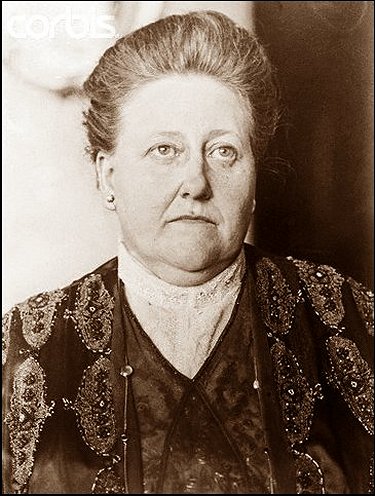
Amy Lowell
(1874-1925)
J.-K. Huysmans
A flickering glimmer through a window-pane,
A dim red glare through mud bespattered glass,
Cleaving a path between blown walls of sleet
Across uneven pavements sunk in slime
To scatter and then quench itself in mist.
And struggling, slipping, often rudely hurled
Against the jutting angle of a wall,
And cursed, and reeled against, and flung aside
By drunken brawlers as they shuffled past,
A man was groping to what seemed a light.
His eyelids burnt and quivered with the strain
Of looking, and against his temples beat
The all enshrouding, suffocating dark.
He stumbled, lurched, and struck against a door
That opened, and a howl of obscene mirth
Grated his senses, wallowing on the floor
Lay men, and dogs and women in the dirt.
He sickened, loathing it, and as he gazed
The candle guttered, flared, and then went out.
Through travail of ignoble midnight streets
He came at last to shelter in a porch
Where gothic saints and warriors made a shield
To cover him, and tortured gargoyles spat
One long continuous stream of silver rain
That clattered down from myriad roofs and spires
Into a darkness, loud with rushing sound
Of water falling, gurgling as it fell,
But always thickly dark. Then as he leaned
Unconscious where, the great oak door blew back
And cast him, bruised and dripping, in the church.
His eyes from long sojourning in the night
Were blinded now as by some glorious sun;
He slowly crawled toward the altar steps.
He could not think, for heavy in his ears
An organ boomed majestic harmonies;
He only knew that what he saw was light!
He bowed himself before a cross of flame
And shut his eyes in fear lest it should fade.
Amy Lowell poetry
fleursdumal.nl magazine
More in: Archive K-L, Joris-Karl Huysmans, Lowell, Amy
.jpg)
Giacomo Leopardi
(1798-1837)
La sera del dì di festa
Dolce e chiara è la notte e senza vento,
E queta sovra i tetti e in mezzo agli orti
Posa la luna, e di lontan rivela
Serena ogni montagna. O donna mia,
Già tace ogni sentiero, e pei balconi
Rara traluce la notturna lampa:
Tu dormi, che t’accolse agevol sonno
Nelle tue chete stanze; e non ti morde
Cura nessuna; e già non sai nè pensi
Quanta piaga m’apristi in mezzo al petto.
Tu dormi: io questo ciel, che sì benigno
Appare in vista, a salutar m’affaccio,
E l’antica natura onnipossente,
Che mi fece all’affanno. A te la speme
Nego, mi disse, anche la speme; e d’altro
Non brillin gli occhi tuoi se non di pianto.
Questo dì fu solenne: or da’ trastulli
Prendi riposo; e forse ti rimembra
In sogno a quanti oggi piacesti, e quanti
Piacquero a te: non io, non già, ch’io speri,
Al pensier ti ricorro. Intanto io chieggo
Quanto a viver mi resti, e qui per terra
Mi getto, e grido, e fremo. Oh giorni orrendi
In così verde etate! Ahi, per la via
Odo non lunge il solitario canto
Dell’artigian, che riede a tarda notte,
Dopo i sollazzi, al suo povero ostello;
E fieramente mi si stringe il core,
A pensar come tutto al mondo passa,
E quasi orma non lascia. Ecco è fuggito
Il dì festivo, ed al festivo il giorno
Volgar succede, e se ne porta il tempo
Ogni umano accidente. Or dov’è il suono
Di que’ popoli antichi? or dov’è il grido
De’ nostri avi famosi, e il grande impero
Di quella Roma, e l’armi, e il fragorio
Che n’andò per la terra e l’oceano?
Tutto è pace e silenzio, e tutto posa
Il mondo, e più di lor non si ragiona.
Nella mia prima età, quando s’aspetta
Bramosamente il dì festivo, or poscia
Ch’egli era spento, io doloroso, in veglia,
Premea le piume; ed alla tarda notte
Un canto che s’udia per li sentieri
Lontanando morire a poco a poco,
Già similmente mi stringeva il core.
![]()
Giacomo Leopardi poetry
fleursdumal.nl magazine
More in: Archive K-L, Leopardi, Giacomo
.jpg)
Mikhail Yuryevich Lermontov
(Михаи́л Ю́рьевич Ле́рмонтов 1814 – 1841)
![]() The reed
The reed
A fisherman sat humming
Beside a stream one day
And watched the wind of morning
The reeds and grasses sway.
He cut a reed, and, making
A hole in it or two,
To one end held a finger
And in the other blew.
The reed to life was wakened,
It spoke up with a sigh.
Was’t voice of wind or maiden,
Its gentle voice and shy?
"0 fisherman," it begged him,
"Do not torment me so.
0 fisherman, I pray you,
Hear out my tale of woe.
"A fair and lovely maiden
But motherless I was.
I bloomed, but bloomed unwanted,
By no one loved, alas!
My father he remarried
And took a witch to wife.
I called on death to claim me
So wretched was my life.
"The witch she had a dearly
Beloved son, had she,
A worthless rogue and scapegrace
Who fooled young maids was he.
I went with him one evening
To walk beside the stream
And watch its waters mirror
The sun’s last dying gleam.
"My love in vain he begged forþ
Him and his pleas i spurned.
Gold coins to me he offeredþ
In ire from him I turned.
Then with his knife he struck me.
He struck me in the breast.
A grave he dug and put me
There on the bank to rest.
"And o’er my grave soon after
There grew a slender reed,
And in it live the sorrows
That made my young heart bleed.
0 fisherman, pray leave me,
Do not disturb my sleep.
Alack, you cannot help me
And have not learnt to weep!…"
.jpg)
Mikhail Lermontov poetry
kempis.nl poetry magazine
More in: Archive K-L
.jpg)
Amy Levy
(1861-1889)
Epitaph
(On a Commonplace Person Who Died in Bed)
THIS is the end of him, here he lies:
The dust in his throat, the worm in his eyes,
The mould in his mouth, the turf on his breast;
This is the end of him, this is best.
He will never lie on his couch awake,
Wide-eyed, tearless, till dim daybreak.
Never again will he smile and smile
When his heart is breaking all the while.
He will never stretch out his hands in vain
Groping and groping–never again.
Never ask for bread, get a stone instead,
Never pretend that the stone is bread.
Never sway and sway ‘twixt the false and true,
Weighing and noting the long hours through.
Never ache and ache with chok’d-up sighs;
This is the end of him, here he lies.
Amy Levy poetry
fleursdumal.nl magazine
More in: Amy Levy, Archive K-L, Levy, Amy
Thank you for reading Fleurs du Mal - magazine for art & literature